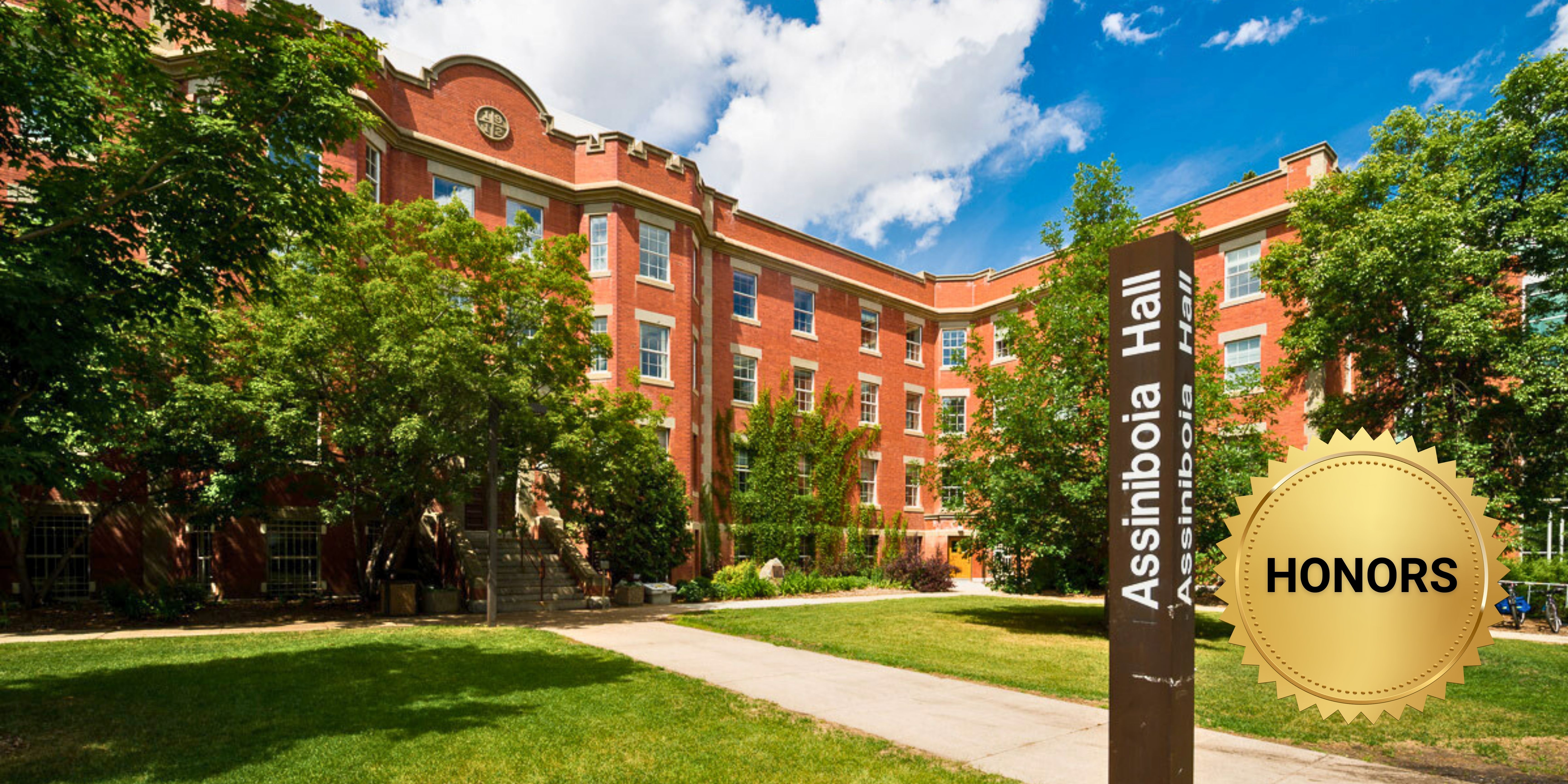Bachelor of Arts Honors in Linguistics Degree Program Guide

An Honors Degree in Linguistics involves some specialized coursework, an individual research project and, most importantly, the writing of an Honors Thesis. Being in the Honors program requires top marks in Linguistics, and gives talented students a chance to get the most out of their degree. If you’re interested in graduate studies, working closely with faculty members, and delving deeper into your undergraduate studies, this is the right program for you.
How does language work in the brain? How is language learned? How can endangered languages be sustained? Delve into these questions and more in Linguistics, the scientific study of human language. Studying Linguistics provides insight into our ability to communicate and how language influences human behaviour and impacts society.
Academic Requirements for Linguistics Honors students
- Honors in Linguistics requires a minimum of 48 units in Linguistics
- Promotion from year to year requires a GPA of at least 3.0 with an average of at least 3.3 in all Linguistics courses in the Fall/Winter
- Graduation with Honors in Linguistics requires a graduation average of at least 3.0 with an average of at least 3.3 on all courses applied to the major completed at the University of Alberta. Graduation with First Class Honors requires an average of at least 3.7 on all courses in the two final years in the major and an average of at least 3.5 on all courses in the two final years. The two final years shall be defined as the last 60 units
- LING 101 - Introduction to Linguistic Analysis
- LING 102 - Linguistics in Action
- LING 204 - Syntax of the World’s Languages
- LING 205 - Phonetics
- LING 308 - Morphology
- LING 309 - Syntax
- LING 310 - Phonology
- LING 402 - Honors Research
- LING 501 - Research Project Seminar
- LING 502 - Honors Project
- Students may enroll in LING 502 for 3 units (Fall or Winter term) or 6 units (Fall and Winter term) credits depending on their program.
- An additional 6 units from your choices of LING courses at the 400 or 500 level.
- A maximum of 60 units in Linguistics is permitted
- Students may enroll in LING 502 for 3 units (Fall or Winter term) or 6 units (Fall and Winter term) credits depending on their program
Academic Requirements for Linguistics Combined Honors students
- LING 101 - Introduction to Linguistic Analysis
- LING 102 - Linguistics in Action
- LING 204 - Syntax of the World’s Languages
- LING 205 - Phonetics
- LING 308 - Morphology
- LING 309 - Syntax
- LING 310 - Phonology
- LING 402 - Honors Research
- LING 501 - Research Project Seminar
- LING 502 - Honors Project
- Students may enroll in LING 502 for 3 units (Fall or Winter term) or 6 units (Fall and Winter term) credits depending on their program.
- An additional 3 units from a LING course of your choice at the 400 or 500 level
- In a Combined Honors program, students are required to meet the promotion and graduation standards of each discipline
The University of Alberta Calendar will always contain the most up-to-date degree requirements for your program, and your requirements are determined by the calendar year you were admitted in.
What kinds of courses can Linguistics Honors students take?
- LING 101 - Introduction to Linguistic Analysis
- LING 111 - Intro to Linguistic Analysis for Language Revitalization
- LING 204 - Syntax of the World's Languages
- LING 205 - Phonetics
- LING 211 - Phonetics of Indigenous Languages
- LING 308 - Morphology
- LING 309 - Syntax
- LING 400 - Psycholinguistics
- LING 405 - Historical Linguistics
- LING 501 - Research Project Seminar
- LING 502 - Honors Project
What kinds of careers can you pursue with a Linguistics Honors degree?
There are many different fields and career paths that students can pursue with a Linguistics Honors degree. From language education to speech therapy, graduates are equipped with critical thinking, research and communication skills to name a few, that are assets in today’s job market. Although there is a list of career options below, it is important to understand that careers are not linear. Intentionally engaging in a variety of activities and following your curiosities will open new opportunities that you might not have expected. To learn more about how you can put your Arts degree to work, stop by the HUB Career Centre (8917 HUB Mall) for more information.
- Speech-Language Pathologist
- Audiologist
- Clinical Linguist
- Computational Linguist
- Speech Recognition Specialist
- Language Data Analyst
- Educator (Professor, Secondary or Primary)
- Forensic Linguist
- Legal Consultant
- Program Coordinator
- Grant Writer
- Community Outreach Specialist
- Human Resources Specialist
- Policy Analyst
- +More!
Interested in gaining work experience related to your career goals? If so, apply to Arts Work Experience to gain full-time, PAID, work experience before you graduate!
Important Links
- Department website
- Students’ association information
- Full program overview
- Prospective student information and application
- Graduate studies information
- Current Arts student advising
Department Contact Information
- General department email: lingea@ualberta.ca
- General department phone number: 780-492-3434
- Department Undergraduate Advisor email: lingugr@ualberta.ca